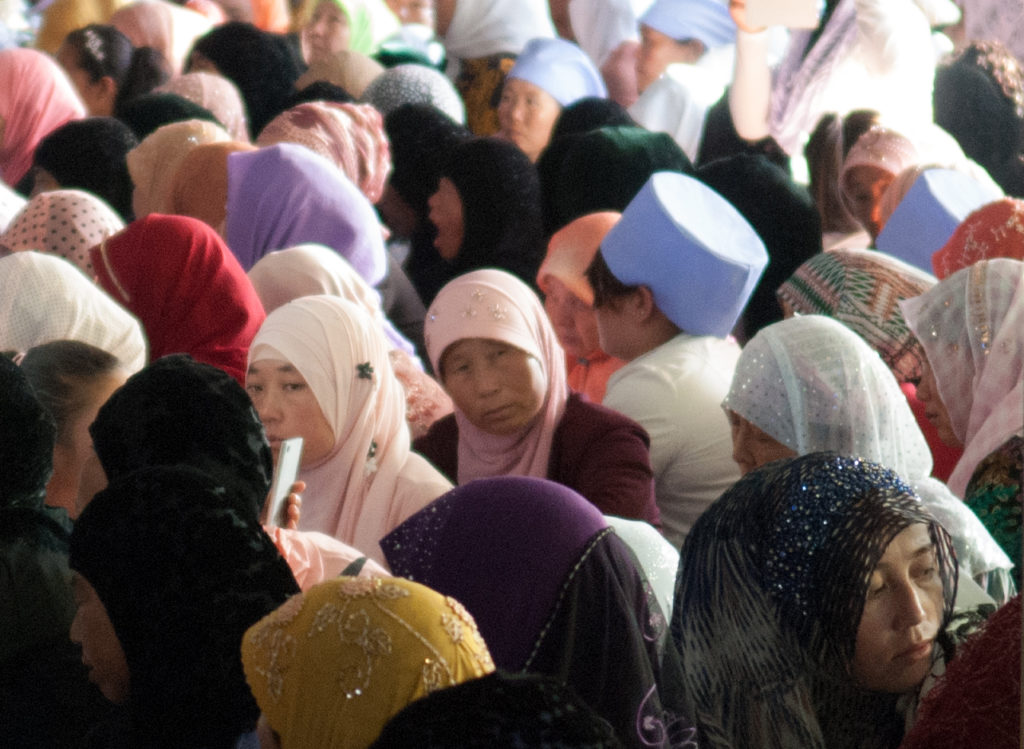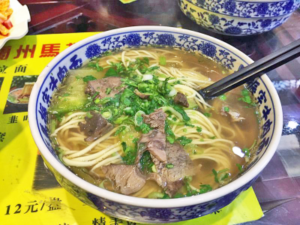This is part four of the series “Know Thy Hui Neighbor” based on the Know Thy Hui Neighbor (KTHN) training. This course is to train local and overseas Christians to share Christ’s love with the Hui.
How did you feel the first time you visited a “foreigner’s” home? Were you nervous? Did you find yourself wondering what to wear, what food would be served, and whether to bring a gift? Perhaps you are more often the host. How do you help your cross-cultural guests feel at ease?
In past posts, we learned about Hui history and religion, things found in books and uncovered through in-depth field research.
Today we look at everyday life. You could read books1 and watch videos,2 but if you live among the people, the best resources are your own five senses. Here are a few tips to get you started befriending Hui.
Hui Greetings
“As-salamu alaikum!” Hui greet each other as other Muslims do, with the Arabic phrase meaning “Peace be upon you.” Pronunciation may be Sinicized as An-seliangmu alaikumu (安色俩目阿来库木) or shortened to seliangmu (色俩目).3 When the full greeting is offered, the reply is: “Wa-alaikumu salam” (吾阿来库色俩目). Used correctly, a Hui greeting elicits a much warmer response than the Chinese “Ni hao!” (你好) used by outsiders.
The greeting of peace is inappropriate across genders or in immodest circumstances, such as near bathrooms. In these cases, the best greeting is a simple nod.
Hui Clothing

Even before you say a word, you communicate a lot about yourself by your clothing. The keyword here is “modesty.”
For men, modesty means clean, dull-colored clothes covering the shoulders and knees. Glitter, floral designs, and bright colors are deemed too feminine. Shirts must be long enough to remain modest when the man bends forward to pray. White hats (白帽子, bai maozi) are standard for men at prayer or working in the food industry. Those who frequently visit the mosque may wear their hats every day for convenience.
Women’s clothing varies by region and according to a woman’s age, marital status, and religious beliefs. Rural Hui women tend to be more conservative, covering head, neck, arms, and legs with loose-fitting tops and trousers. Some insist on covering the toes. In cities, more women choose tight-fitting clothes or short sleeves.
Women’s head coverings come in every conceivable style—from the plain blue cotton “baker’s cap”4 to the elaborate “camel hump”—and vary by region, age, fashion, and how the woman is spending her day. Some styles proclaim the wearer’s religious ideology. Others appear no different from the headscarves worn by non-Hui gardeners and laborers. Many Hui women keep their hair uncovered, in which case a ponytail might be seen as more modest than hair left hanging loose, but again, it varies by region.
You may not know what the dress standards of your host community are until you arrive, but you need to decide how you hope to be identified beforehand. You will want them to know you are clean, respectful, and respectable. But do you want your attire to imply you are a Christian, a Muslim, or leave your religious affiliation ambiguous? Do you want to display your age, fashion sense, foreign influences, wealth?
When in doubt, err on the side of conservatism and neutrality. Adjust towards your preferences as you gradually learn what will build bridges and not burn them down.
Visiting Hui Homes
Hui take hospitality seriously, imitating Abraham’s provision for his angelic visitors (see Genesis 18). When invited to your Hui friends’ homes, expect a long visit and a full meal. Bring gifts of fruit or tea; there must be no doubt about your gift’s qingzhen (清真, halal) status.5
Hui bedrooms and kitchens are off-limits without an invitation. This may surprise some non-Hui guests. In Northern Chinese homes, it’s common for guests to pile their bulky winter coats on the host’s bed, and visitors who are tired freely find places to nap. But Hui are more cautious about gender separation and modesty. Bedrooms are where dressing and breastfeeding occur. Women perform ablutions (ritual washing) in the kitchen, so always ask before entering.
Hui Food
By now, you know Hui don’t eat pork. So, what do they eat? Hui dishes look and taste a lot like the Chinese cuisines of their local areas, with a few distinctions.
First, all pork products, including fats, are replaced by qingzhen meats. Cattle, sheep, and poultry are only qingzhen if ritually slaughtered (宰 zai, never 杀 sha)6 by a qualified Muslim, who must recite set phrases in Arabic. These include a declaration that God is great, acknowledging that only God has the right to take this animal’s life. Specifics vary, including words and slaughter methods, which might be one reason many Hui only trust local suppliers. Despite the stringent rules, do not be tempted to skip the meat when you eat with Hui. Hospitality without meat is not hospitality at all. Moreover, meat dishes must be mostly meat; if half the ingredients are vegetables, it counts as a vegetarian dish.
Secondly, flavors in Hui food tend to be stronger than the Chinese dishes that inspire them. Oil, spice, and salt are must-haves. Hui sweets are sweeter than typical Chinese desserts and are eaten more often—a favorite of mine is babaofan (八宝饭, eight treasure rice). They also add sugar, dried fruits, and flowers to their tea to make babaocha (八宝茶, eight treasure tea).
Thirdly, Hui love wheat. Most Hui live in the northwest, where breads and noodles, rather than rice, dominate the diet. Ceremonial foods, including youxiang (油香) and sanzi (馓子), are wheat-based.
When you dine with Hui, try to follow their lead. Some forbid alcohol (even cooking wine) while others drink. The first time you host new Hui friends in your home, offer paper cups, and don’t be offended if they drink only tea. They need time to observe how qingzhen your home is, what brands of condiments you use, and whether pork may ever have touched your kitchenware. As you share food, trust increases. As trust increases, more food is shared.
They say Hui have two hobbies: cooking and eating. When I invite my Hui friends to play sports, watch movies, or sing KTV, they sometimes come. When I invite them to cook and eat together at home, they always come—and they help with the shopping too! Serving the Hui takes time. It happens in homes. It’s not an event, or a job that fits a set schedule but a lifestyle that invites your whole family to work, rest, and play in community with others. You might struggle to keep your family and leisure time to yourself. But with food and company this good, who needs hobbies anyway?
Endnotes
- The “Know Thy Hui Neighbor” training material cites: 王正伟《回族民俗学》宁夏人民出版社, 2008. (Wang Zhengwei, Folklore of the Chinese Hui Ethnic Minority. Ningxia People’s Publisher, 2008.)
- Some possible videos include: On greetings—a short clip with several people, men and women saying Salam Alaikum, https://www.youtube.com/watch?v=zLDHxQOh5YY; on food—an English speaker visits Lanzhou to try Hui food, meeting a variety of Hui people, trying all their street foods, and filming the experts making 牛肉拉面, https://youtu.be/ETkZpJcZhkI; on visiting Hui homes—an English teacher from Indonesia takes us on her first visit to a Hui home in Xining, then reflects on the cultural experience, https://youtu.be/wvUE2vfeDBo.
- Written forms and pronunciations vary regionally, and longer greetings than those cited here are used in some regions, especially Qinghai and Gansu.
- While this cap is blue in color, Hui people call it a bai maozi (white hat) even though it is not white. It came into use during the “destroy the four olds” campaign as a possible alternative for women who did not want to completely give up their hijab.
- As discussed previously, Hui have historical reasons to distrust foods from outside their immediate circles of trust.
- Unlike Han Chinese, Hui reserve the word sha (杀, kill), for when the intent is violent (as in murder). Such acts are categorically different from zai (宰), slaughtering meat for food or as a sacrifice.
Header image credit: N509FZ, CC BY-SA 4.0, via Wikimedia Commons.
Text image courtesy of the author.

Julie Ma
Julie Ma (pseudonym) is a graduate of Sydney Missionary and Bible College (SMBC) and a member of the Angelina Noble Centre for women in cross-cultural missions research. She left her home in Australia over a decade ago to serve Hui Chinese Muslims alongside her Chinese husband. After all these years overseas, …View Full Bio
Are you enjoying a cup of good coffee or fragrant tea while reading the latest ChinaSource post? Consider donating the cost of that “cuppa” to support our content so we can continue to serve you with the latest on Christianity in China.